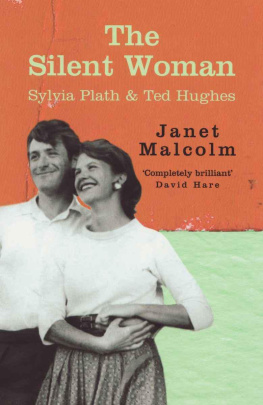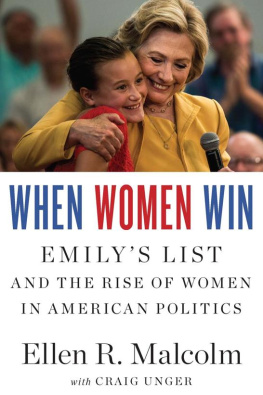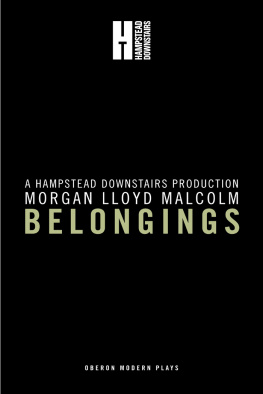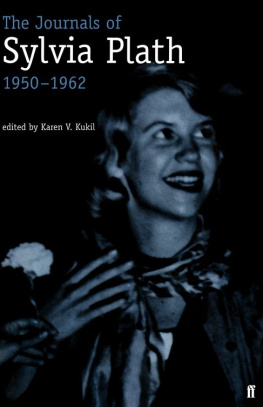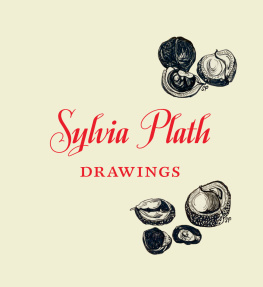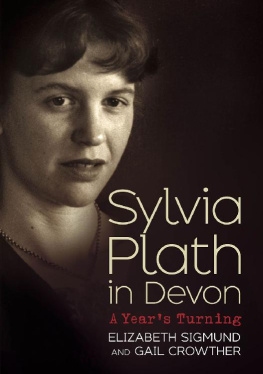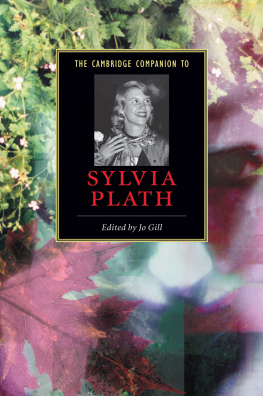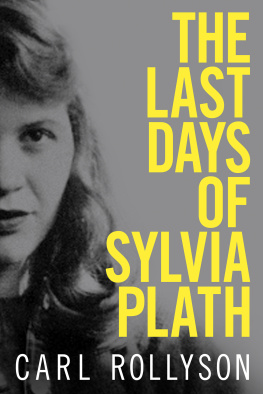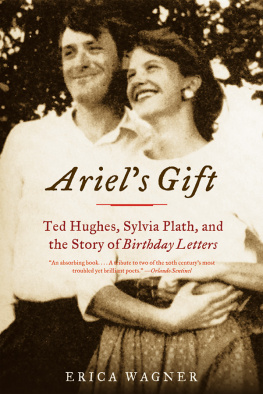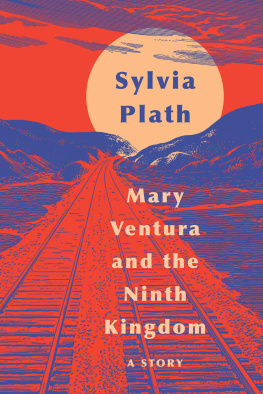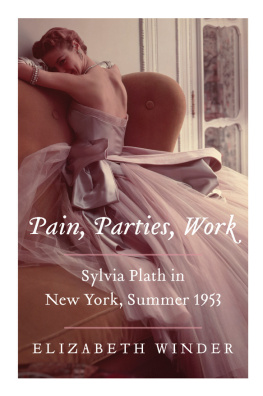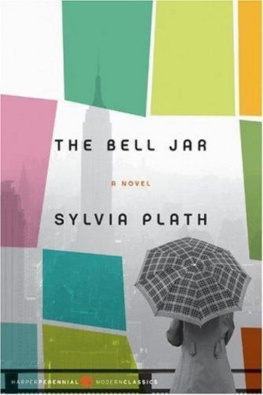Malcolm - The Silent Woman: Sylvia Plath and Ted Hughes
Here you can read online Malcolm - The Silent Woman: Sylvia Plath and Ted Hughes full text of the book (entire story) in english for free. Download pdf and epub, get meaning, cover and reviews about this ebook. year: 2011, publisher: Granta Books (UK), genre: Science. Description of the work, (preface) as well as reviews are available. Best literature library LitArk.com created for fans of good reading and offers a wide selection of genres:
Romance novel
Science fiction
Adventure
Detective
Science
History
Home and family
Prose
Art
Politics
Computer
Non-fiction
Religion
Business
Children
Humor
Choose a favorite category and find really read worthwhile books. Enjoy immersion in the world of imagination, feel the emotions of the characters or learn something new for yourself, make an fascinating discovery.
The Silent Woman: Sylvia Plath and Ted Hughes: summary, description and annotation
We offer to read an annotation, description, summary or preface (depends on what the author of the book "The Silent Woman: Sylvia Plath and Ted Hughes" wrote himself). If you haven't found the necessary information about the book — write in the comments, we will try to find it.
Malcolm: author's other books
Who wrote The Silent Woman: Sylvia Plath and Ted Hughes? Find out the surname, the name of the author of the book and a list of all author's works by series.
The Silent Woman: Sylvia Plath and Ted Hughes — read online for free the complete book (whole text) full work
Below is the text of the book, divided by pages. System saving the place of the last page read, allows you to conveniently read the book "The Silent Woman: Sylvia Plath and Ted Hughes" online for free, without having to search again every time where you left off. Put a bookmark, and you can go to the page where you finished reading at any time.
Font size:
Interval:
Bookmark:
The Silent Woman is one of the most gripping and provoking things I have read about biography Im intrigued by the sense Malcolm has of Plaths life having left a sort of blight, a strange force-field which affects everyone who gets sucked into it Hermione Lee
Janet Malcolm is an investigative reporter in the best sense. Her quest is the truth here about the nature of biography not just a story. As one might expect, though, the depth of the investigation and the way it is presented make a wonderful story Daily Telegraph
Intensely compelling, intensely uncomfortable The Silent Woman is a book that sets out to be provocative and succeeds. It is superbly written, flowing like a piece of music from theme to theme, recapitulating here, changing key there, always disguising the complexity of its underlying construction Lucasta Miller, Independent
Reading Malcolm, I am often reminded of T.S. Eliots remark that the only quality a critic needs is to be highly intelligent; the I of her books is a kind of concentrate of learned, well-heeled cosmopolitan intelligence. Her shape is delineated by the way the other participants in a given story move around her Geoff Dyer, Guardian
Not since Virginia Woolf [has] anyone thought so trenchantly about the strange art of biography We follow along as Malcolm crisscrosses the United States and Britain in search of Plaths friends, lovers, neighbours, biographers. What makes these exchanges so fascinating is that Malcolm herself has the the novelists noticing eye that she has attributed to Plath Christopher Benfey, Newsday
Intellectually explosive, morally challenging and enormous fun Financial Times
THE SILENT WOMAN
Sylvia Plath & Ted Hughes
Janet Malcolm

Table of Contents
The reporter and the reported have duly and equally to understand that they carry their life in their hands. There are secrets for privacy and silence; let them only be cultivated on the part of the hunted creature with even half the method with which the love of sportor call it the historic senseis cultivated on the part of the investigator. They have been left too much to the natural, the instinctive man; but they will be twice as effective after it begins to be observed that they may take their place among the triumphs of civilisation. Then at last the game will be fair and the two forces face to face; it will be pull devil, pull tailor, and the hardest pull will doubtless provide the happiest result. Then the cunning of the inquirer, envenomed with resistance, will exceed in subtlety and ferocity anything we today conceive, and the pale forewarned victim, with every track covered, every paper burnt and every letter unanswered, will, in the tower of art, the invulnerable granite, stand, without a sally, the siege of all the years. HENRY JAMES, George Sand (1897) Liz Taylor is getting Eddie Fisher away from Debbie Reynolds, who appears cherubic, round-faced, wronged, in pin curls and house robeMike Todd barely cold. How odd these events affect one so. Why? Analogies? SYLVIA PLATH, Journals , September 2, 1958P ART O NE
I
T ED HUGHES wrote two versions of his foreword to The Journals of Sylvia Plath , a selection of diary entries covering the years between 1950 and 1962. The first version (the one that appears in the book, published in 1982) is a short, lyrical essay constructed on a single Blakean themethe theme of a real self that finally emerged from among Plaths warring false selves and found triumphant expression in the Ariel poems, which were written in the last half year of her life and are the whole reason for her poetical reputation. In Hughess view, her other writingsthe short fiction she doggedly wrote and submitted, mostly unsuccessfully, to popular magazines; her novel, The Bell Jar ; her letters; her apprentice poems, published in her first collection, The Colossus were like impurities thrown off from the various stages of the inner transformation, by-products of the internal work. He writes about a remarkable prefigurative moment:
Though I spent every day with her for six years, and was rarely separated from her for more than two or three hours at a time, I never saw her show her real self to anybodyexcept, perhaps, in the last three months of her life. Her real self had showed itself in her writing, just for a moment, three years earlier, and when I heard itthe self I had married, after all, and lived with and knew wellin that brief moment, three lines recited as she went out through a doorway, I knew that what I had always felt must happen had now begun to happen, that her real self, being the real poet, would now speak for itself, and would throw off all those lesser and artificial selves that had monopolized the words up to that point. It was as if a dumb person suddenly spoke.Hughes goes on to say that when a real self finds language, and manages to speak, it is surely a dazzling event. However, because the Ariel poems reveal little about the incidental circumstances or the crucial inner drama that produced them, he pauses to reflect that maybe it is this very bareness of circumstantial detail that has excited the wilder fantasies projected by others in Sylvia Plaths name. Publication of the journals, he feels, will presumably lay some of these fantasies to rest, but he does not elaborate on how they will do this; he merely notes that they record Plaths day to day struggle with her warring selves and are to be exempted from his overall characterization of her prose writings as waste products. Hughes ends his three-page essay with a revelation that is so unexpected and so abrupt that one doesnt immediately take in its significance:
The journals exist in an assortment of notebooks and bunches of loose sheets. This selection contains perhaps a third of the whole bulk, which is now in the Neilson Library at Smith College. Two more notebooks survived for a while, maroon-backed ledgers like the 5759 volume, and continued the record from late 59 to within three days of her death. The last of these contained entries for several months, and I destroyed it because I did not want her children to have to read it (in those days I regarded forgetfulness as an essential part of survival). The other disappeared.The second version of the foreword, published in Grand Street in 1982 and, three years later, in an anthology of writings about Plath called Ariel Ascending , edited by Paul Alexander, is considerably longer, denser, and more complex; it hasnt the elegant single-threadedness of the first version. It is as if Hughes looked at his first version and cast it aside as one of the too simple and too pretty false starts that a writer must make as a necessary part of finding out what he wants to say. (You could even call it a throwing off of impurities.) In his second foreword Hughes puts his revelation about the lost journals at the very beginning:
Sylvia Plaths journals exist as an assortment of notebooks and bunches of loose sheets, and the selection just published here contains about a third of the whole bulk. Two other notebooks survived for a while after her death. They continued from where the surviving record breaks off in late 1959 and covered the last three years of her life. The second of these two books her husband destroyed, because he did not want her children to have to read it (in those days he regarded forgetfulness as an essential part of survival). The earlier one disappeared more recently (and may, presumably, still turn up).We note that Hughes has made two changes. In one he holds out hope that the disappeared journal may eventually reappear (inviting the speculation that the journal is in fact, and may always have been, in his hands). In the other, and more crucial, change he has himself disappeared: I destroyed now becomes her husband destroyed. Hughes can no longer sustain the fictionon which all autobiographical writing is poisedthat the person writing and the person being written about are a single seamless entity. In his second foreword Hughes needs to spell out his awareness of the discontinuity between the observing and the observed self: the observed self (her husband) represents the interests of the Hughes children, who must be protected from destructive knowledge, whereas the observing selfwhom he calls we, as in We cannot help wondering whether the lost entries for her last three years were not the more important sectionrepresents the interests of the reader, who wants to understand the relationship between the Ariel poems and the poets life. The publication of Plaths journals was evidently undertaken to elucidate this relationship. But her husband s destructive act has made a kind of mockery of the enterprise, since the very journals that would cast light on the Ariel poemsthe journals written while the poems were being composedare the ones he destroyed and lost. This is the conundrum that Hughes must solve in his second foreword, and this is why he has, with helpless honesty (which an unsympathetic reader could mistake for evasiveness), divided himself intoyou could even say lost himself inthe two selves, neither one true or false, that allegorize the impossibility of his situation as both editor and destroyer.
Next pageFont size:
Interval:
Bookmark:
Similar books «The Silent Woman: Sylvia Plath and Ted Hughes»
Look at similar books to The Silent Woman: Sylvia Plath and Ted Hughes. We have selected literature similar in name and meaning in the hope of providing readers with more options to find new, interesting, not yet read works.
Discussion, reviews of the book The Silent Woman: Sylvia Plath and Ted Hughes and just readers' own opinions. Leave your comments, write what you think about the work, its meaning or the main characters. Specify what exactly you liked and what you didn't like, and why you think so.

